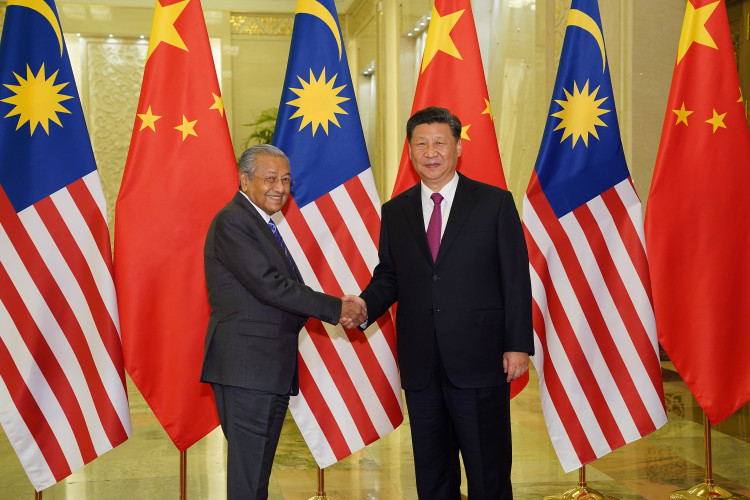Malaysian Prime Minister Tun Dr Mahathir Mohamad backed China's Belt and Road Initiative (BRI) that he previously questioned following his five-day visit in Beijing.
According to Bernama, Mahathir spoke before the media after wrapping up his China visit, clarifying that while he initially thought that the BRI was Chinese President Xi Jinping's attempt to be a dominant trade power, he finally has a clear perspective of the massive project.
Mahathir noted that earlier projects he encountered seemed to have a plan of creating a trade environment without free trade. However, he said that China's BRI is an entirely different scheme.
"This is not like that, the forum attendees are from small countries and they are sitting with China which has a 1.4 billion population. They sit together, at the same level, and talk about how to develop infrastructure projects," Mahathir explained.
Before the second Belt and Road Forum held in Beijing last week, Mahathir was among the Asian leaders who seemed to be hesitant and doubtful of China's grandiose infrastructure project. However, the 93-year-old Malaysian chief said attending the forum changed his perspective.
"We feel that the OBOR initiative is not a domination plan by China, which would end up being controlled by China," he noted, adding that the project is one that all countries involved will develop collaboratively.
A recent Quartz report said Malaysia was a prominent skeptic of the Belt and Road Initiative. However, Mahathir's change of heart and attendance in this year's BRI forum could symbolize how Beijing is bending the plan is gradually adapting to criticism from world leaders.
Aside from approving a revamped East Coast Railway Link (ECRL) plan, Mahathir also gave the green light for an artificial intelligence (AI) park that China's SenseTime will build under a $1 billion fund.
Analysts said the developments indicate that Xi and his administration are willing to adjust accordingly to changes proposed by other parties as long as both sides will benefit from the reforms.
The second Belt and Road Forum garnered eight new heads of state who did not attend the first conference, with some of them hailing from the European Union (EU). Diplomatic experts said EU leaders attending the forum suggest that the BRI is attractive not just among developing nations but also developed countries.
Xi's forum was used by Beijing to not just rebrand the Belt and Road Initiative but also to let its biggest critic - the United States - know that it is "rhetorically" willing to address Washington's concerns related to trade, senior fellow at the Asia-Pacific Security Program, Daniel Kliman, said.






